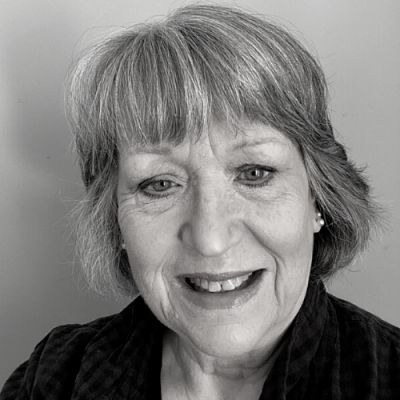American Literature for Middle Grades
Required Materials:
Books and supplies are not included in the purchase of the course.
For Sections with Vixie Friedman:
American Literature: ( Unless noted by ISBN, any version will work, assignments are posted by chapter)
- Island of the Blue Dolphins by Scott O’Dell
- Witch of Blackbird Pond by Elizabeth George Speare
- Johnny Tremain by Esther Forbes
- Bound for Oregon by Jean Van Leeuwen
- Across Five Aprils by Irene Hunt
- Short Story unit with Mark Twain, Nathaniel Hawthorne, Jack London, Louisa May Alcott, and O’Henry (pdfs to be provided by teacher)
- Lyddie by Katherine Paterson
- Blue Willow by Doris Gates
- Roll of Thunder, Hear My Cry by Mildred Taylor
- The Devil’s Arithmetic by Jane Yolen
- The Legend of Sleepy Hollow by Washington Irving (pdf to be provided by teacher)
- Various poetry by American poets such as Walt Whitman, Emily Dickinson, Robert Frost, Langston Hughes, and other. Pdfs supplied by teacher.
- Various fables, tall tales, and other pdfs provided by the teacher.
For Sections with Allen Rushing:
- Origins: Native American and American (PDFs to be provided by teacher on Origin stories, “Emergence” and “Earth Diver” stories, and selections from Genesis)
- Witch of Blackbird Pond by Elizabeth George Speare
- True to the Old Flag by G. A. Henty (paperbacks available at Abe Books)
- Tom Sawyer by Mark Twain
- Poetry unit with Longfellow, Poe, Emily Dickinson, Robert Frost (PDFs provided by teacher)
- The Devil’s Arithmetic by Jane Yolen
- Short Story unit with Mark Twain, Edgar Allan Poe, Stephen Crane, Jack London, O’Henry, O’Connor, James Thurber, Ray Bradbury, Philip K. Dick (PDFs to be provided by teacher)
- The Mysterious Benedict Society by Trenton Lee Stewart
- Possible other selections (PDF’s to be provided by teacher)

Allen Rushing
[email protected]Allen Rushing has always loved story, and that love only grew when, at the age of 14, the Lord saved him. Since then he has joyfully studied the truth, beauty, and goodness of The Story found in Scripture and reflected in the great works, from Dante’s Divine Comedy to Tolkien’s Lord of the Rings. One of the delights of The Story is taking the time to delve deeply into it, which is why the “restful” philosophy of Scholé is so appealing to Allen. One of the reasons such an approach is natural for him is because of the way he was homeschooled K-12 in the Classical Christian educational tradition. Allen was able to expand on this solid spiritual and educational foundation through his undergraduate degree in Classics with a History focus; in the process of earning this degree, he enjoyed taking classes in Classical Latin, Koine Greek, Literature, Philosophy, and Theology. While in graduate school, he was able to broaden his historical knowledge base, gaining a greater understanding of Western civilization as a whole and focusing particularly on the periods of the Greco-Roman world, Late Antiquity, medieval period, twentieth century world history, the World Wars, and the Cold War. Since graduate school, Allen has taught the humanities from a biblical worldview. Some of Allen’s favorite ways of enjoying the adventure upon which the Lord has set him are reading, writing, building his house, climbing trees, playing ping pong, and spending time with his wife and two children.

Vixie Friedman
[email protected]Vixie Friedman always wanted to be a teacher and lined up her dolls and stuffed animals to compose her classroom as a young child. That dream became a reality when she began homeschooling her oldest son in 1988, a journey that continued with her six children until her youngest graduated from their family’s homeschool in 2015.
Vixie has taught in a formal classical education setting since 2008 and assisted with curriculum development and staff training with a classical Christian curriculum company. Classical education continues to be her passion as she observes her students blossom and develop their discussion skills while contemplating history and/or literature through Socratic discussions and Socratic circles.
After graduating with a BS degree in nursing from Western Carolina University, Vixie entered the US Army Nurse Corps, where she was stationed in Frankfurt, Germany. This fueled her love of travel and history as she married and left her Army commission to raise a family. She and her husband lived in Germany for nine years and enjoyed traveling throughout Europe, studying the region’s history as they traveled. These days she continues to adventure as she and her husband travel to Israel, Europe, and Africa through their ministry to the Jewish people, Children of Jacob.
She is continuing her own education as she takes classes in classical education, history, literature, Russian, and German and enjoys enriching her education through Bible studies, personal reading, traveling, and book clubs. She enjoys spending time with her friends and family, including a growing number of grandchildren, cooking, gardening, and a multitude of crafts.
Quarter 1
- Pre-America (Before 1600
- _Island of the Blue Dolphin _
- Colonial Period (1630-1735)
- _Witch of Blackbird Pond _
- Revolutionary America (1735-1791)
- Johnny Tremain
Quarter 2
- Continue Revolutionary America (1735- 1791)
- _Johnny Tremain _
- Young Republic & Expansion (1783-1850)
- Bound for Oregon
- Civil War & Reconstruction (1820-1866)
- Across Five Aprils
Quarter 3
- Industrial Revolution (1871-1920)
- _Lyddie _
- WWI/Depression/Dust Bowl (1914-1933)
- Blue Willow
- New Deal & WWII (1933-1945)
- The Devil's Arithmetic
Quarter 4
- Continue New Deal & WW II (1933-1945)
- _The Devil's Arithmetic _
- Civil Rights
- Roll of Thunder Hear My Cry
![]() Computer: You will
need a stable, reliable computer, running with a processor with a speed of 1 GHz or better
on one of the following operating systems: Mac OS X with Mac OS 10.7 or later; Windows 8,
7, Vista (with SP1 or later), or XP (with SP3 or later). We do not recommend using an
iPad or other tablet for joining classes. An inexpensive laptop or netbook would be much
better solutions, as they enable you to plug an Ethernet cable directly into your computer.
Please note that Chromebooks are allowed but not preferred, as they do not support certain
features of the Zoom video conference software such as breakout sessions and annotation,
which may be used by our teachers for class activities.
Computer: You will
need a stable, reliable computer, running with a processor with a speed of 1 GHz or better
on one of the following operating systems: Mac OS X with Mac OS 10.7 or later; Windows 8,
7, Vista (with SP1 or later), or XP (with SP3 or later). We do not recommend using an
iPad or other tablet for joining classes. An inexpensive laptop or netbook would be much
better solutions, as they enable you to plug an Ethernet cable directly into your computer.
Please note that Chromebooks are allowed but not preferred, as they do not support certain
features of the Zoom video conference software such as breakout sessions and annotation,
which may be used by our teachers for class activities.
![]() High-Speed Internet Connection:
You will also need access to high-speed Internet, preferably accessible via Ethernet
cable right into your computer. Using Wi-Fi may work, but will not guarantee you the optimal
use of your bandwidth. The faster your Internet, the better. We recommend using a connection
with a download/upload speed of 5/1 Mbps or better. You can test your Internet connection here.
High-Speed Internet Connection:
You will also need access to high-speed Internet, preferably accessible via Ethernet
cable right into your computer. Using Wi-Fi may work, but will not guarantee you the optimal
use of your bandwidth. The faster your Internet, the better. We recommend using a connection
with a download/upload speed of 5/1 Mbps or better. You can test your Internet connection here.
![]() Webcam: You may
use an external webcam or one that is built in to the computer. Webcam Recommendations:
Good (PC only) | Best (Mac and PC)
Webcam: You may
use an external webcam or one that is built in to the computer. Webcam Recommendations:
Good (PC only) | Best (Mac and PC)
![]() Headset: We recommend
using a headset rather than a built-in microphone and speakers. Using a headset reduces the
level of background noise heard by the entire class. Headset Recommendations: USB | 3.5mm
Headset: We recommend
using a headset rather than a built-in microphone and speakers. Using a headset reduces the
level of background noise heard by the entire class. Headset Recommendations: USB | 3.5mm
![]() Zoom: We use a web
conferencing software called Zoom for our classes, which enables students and teachers to
gather from around the globe face to face in real time. Zoom is free to download and easy
to use.
Zoom: We use a web
conferencing software called Zoom for our classes, which enables students and teachers to
gather from around the globe face to face in real time. Zoom is free to download and easy
to use.  To
download Zoom:
To
download Zoom:
- Visit zoom.us/download.
- Click to download the first option listed, Zoom Client for Meetings.
- Open and run the installer on your computer.
- In August, students will be provided with instructions and a link for joining their particular class.
![]() Scanner: In this
class, students frequently submit homework assignments by scanning pages from their workbooks.
Students and/or their parents should have easy access to a scanner and the ability to use it.
Scanner: In this
class, students frequently submit homework assignments by scanning pages from their workbooks.
Students and/or their parents should have easy access to a scanner and the ability to use it.
Step 1
Step 2
Step 3
Step 4
Explore our courses!
First, read the available course descriptions, noting prerequisites, target grades, and course objectives. If you think your student is prepared for the course, go ahead and register. After registration, a placement assessment may be provided to students, depending on the course and the student’s previous enrollment with Scholé Academy. Registration is finalized when the student’s placement assessment has been returned by the course instructor with placement confirmation.
All Courses | By Grade
Read the Student-Parent Handbook.
Please take careful note of our teaching philosophy, our technology requirements, our school policies, the parent agreement, and the distinctions between our grade levels.
Double-check the course section dates and times.
Make sure they don't conflict with other activities in your schedule or other courses you are purchasing. Our system will not catch double-bookings!
You're ready to add course selections to your cart!
Our Assistant to the Principal will be in touch with you after your enrollment to help you with next steps, including any placement evaluations that may be required for your course selections.
This registration will be finalized when the student's placement assessment has been returned by the course instructor with placement confirmation.
